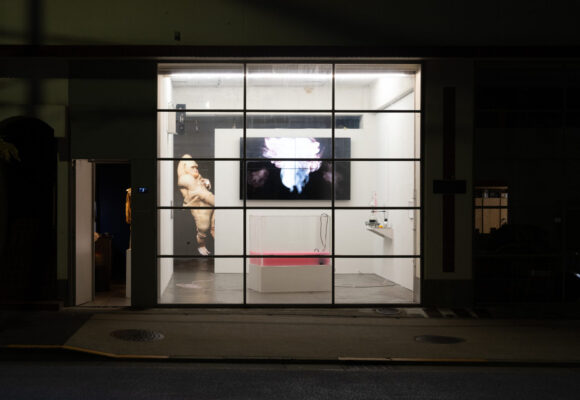Runs an advertisement production company, while also being active as a writer and interviewer in the fields of music, cinema and dance. He is the director of “LAND FES,” an event revolving around improvised sessions with dancers and musicians while wandering through the streets, and is involved in the planning and implementation of workshops and other events for handicapped children.
Architect / Director of Kyoto City Museum (Commonly used name: Kyoto City KYOCERA Museum of Art). Born in 1956 in Yokohama, Japan and graduated from Tokyo University with a Master of Architecture in 1982. Established his own eponymous practice, Jun Aoki and Associates (re-organized as AS in 2020) in 1991. Architectural Institute of Japan Annual Award by Fukushima Lagoon Museum in 1999, and by Kyoto City Museum in 2021. Minister of Education’s Art Encouragement Prize in 2005. Professor of Tokyo University of the Arts.
Curator, associated professor at the Tokyo University of The Arts. Received her BA in Literature from Keio University, and her MA in Museum Studies from Leicester University. Has been involved in the organization of exhibitions and educational programs as a curator for the MitakaCity Arts Foundation(1994-2002) and Mori Art Museum (2003-2018). Exhibitions she curated include ”Odani Motohiko: Phantom Limb,” “Go-Betweens: The World Seen through Children,” “Dinh Q. Lé: Memory for Tomorrow,” and “Roppongi Crossing 2016: My Body, Your Voice.”
Born in Tokyo in 1970, Ben Nagaoka earned his Master’s in Media and Governance from Keio University. After working for the architectural firm Yamashita Sekkei, he established POINT in 1999. In addition to designing structures and objects, his activities include being a co-founder of Co-lab, a coworking space for creatives. He has also been part of VUILD since April 2020, and holds part-time lecturer positions at Keio University and Musashino Art University.
Born in 1981. Ph.D. (Information Studies), after working as a researcher at NTT InterCommunication Center (ICC), co-founder of Dividual, Inc., currently a professor at Waseda University, Faculty of Letters, Arts and Sciences. His research focuses on the relationship between technology, humans, and more-than-human worlds. He leads the Ferment Media Research group to develop “Nukabot,” a fermentation robot that they initially exhibited for “Broken Nature” at XXII La Triennale Milano (2019.3.1~9.1). As the art unit dividual inc. (with Takumi Endo), they exhibited “Last Words / TypeTrace” at Aichi Triennale 2019 “Tame Y/Our Passion” (2019.8.1~10.1), where they collected will writing processes from more than 2,000 people. From October 2020 to June 2021, he served as the exhibition director of 21_21 DESIGN SIGHT “traNslatioNs – Understanding Misunderstanding.” His recent publications include “Modern Japanese Literature as Commons” (East Press) and “Mirai wo tsukuru kotoba: wakariaenasa wo tsugnagu tame ni” (Words that Create the Future: To Connect the Unintelligible) (Shinchosha, Inc.). His supervised translation books include Sandor Katz’s “Fermentation as Metaphor” (O’Reilly Japan) and Rafael Calvo & Dorian Peters’ “Positive Computing” (BNN Shinsha), and he has also supervised the book “To Co-Create Our Well-Being: The Technology, Ideology, and Practice” (BNN Shinsha), among others.
Photo by Rakutaro Ogiwara
Theater journalist. Her articles on various forms of performing arts in Japan and abroad, including drama, dance, musical, and classical performing arts, have been published in such general magazines as InRed and CREA, theater journals like act guide, and online media such as TJAPAN and otocoto. Previous posts include member of the Tokyo Metropolitan Theater’s planning and management committee, and judge at the Agency for Cultural Affairs’ National Arts Festival. Various articles (in Japanese and English) that appeared in The Japan Times can be found here: https://natsumedate.at.webry.info/










